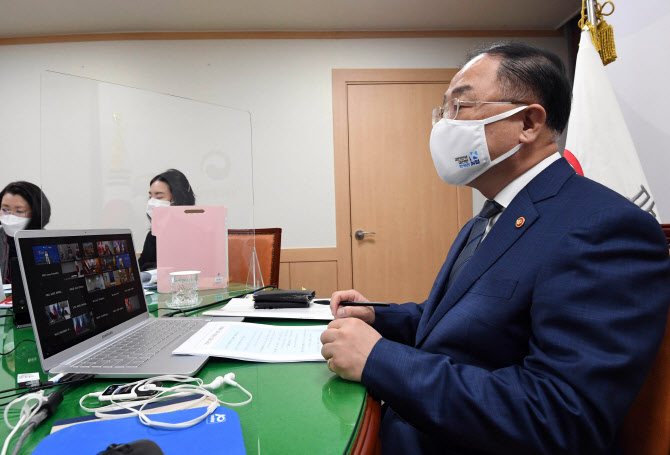|
On the 8th, the Korea Development Institute (KDI) held a report on’Research on Inclusive Growth in Korea: Creating Opportunities for All’ with the OECD and disclosed the results of the cooperative research.
This study is the first national case report to which the OECD applied the’Inclusive Growth Framework Indicator System’, an indicator that composes the status of inclusive growth in member countries for international comparison. The status of Korea’s inclusive growth was checked against international standards, and its achievements and future policy tasks were included.
The OECD assessed that the Moon Jae-in administration’s shift in policy paradigm into an’innovative inclusive state’ contributed to the achievement of sustainable economic growth and improved economic growth and quality of life.
The Moon Jae-in administration promoted policies through a balance of growth and distribution, such as income-led growth, which resulted in improved household income, the employment rate of youth and women, the proportion of low-wage workers, and reduced working hours per year, the OECD analyzed.
The policy to strengthen public education, such as the abolition of free high school tuition and university admission fees, was expected to greatly expand the opportunities for low-income groups to participate in society. It is judged that the strengthening of the guarantee of labor incentives and the increase of the basic/disabled allowance, which are measures to expand the social safety net, contributed to the improvement of the quality of life of the vulnerable and life stability.
In the process of responding to Corona 19, it was evaluated that early blocking of the spread of infection and active support from households and SMEs through additional budget (additional) were effective in maintaining jobs.
The’Korean version of the New Deal’ worth 160 trillion won by 2025, announced last year, was viewed as a desirable policy direction for realizing a sustainable and inclusive society. Through the Korean version of the New Deal, the government has set up a policy to convert to a digital economy and a low-carbon, eco-friendly industry and create more than 1.9 million jobs.
The OECD recommended that in order to alleviate inequality and promote the participation of vulnerable groups in the economy and society in the future, support for childcare and education, establishment of a solid employment and social safety net, and inclusion and innovation policies should be complemented so that they are interconnected.
Regarding the Korean labor market, he cited the dual structure as a task to be resolved, and suggested that conditions for non-regular workers should be improved and the employment gap should be resolved through the minimum wage system. Although the reduction in jobs due to automation is somewhat lower than the OECD average, it was analyzed that the establishment of a social safety net and income/reemployment support to cope with the rapidly changing labor market are needed. It emphasized the design of customized policies for the vulnerable, such as women, youth, the elderly, and migrant workers, and the provision of various vocational training and quality jobs.
It was evaluated as policies that contributed to reducing the wage gap between non-regular workers and regular workers and strengthening employment welfare, such as becoming regular workers in the public sector, increasing the minimum wage and unemployment benefit payments, and expanding employment insurance coverage.
Regarding the Korean innovation policy, they positively evaluated the regulatory sandbox in preparation for the 4th Industrial Revolution era, the implementation of the Free Regulatory Zone, and the strengthening of R&D support for SMEs. However, they ordered efficient support to increase the growth and survival rate of start-up companies.
As for the Korean business environment, he pointed out that the development of the manufacturing industry centered on chaebols is a factor of concern that will hinder the productivity gap and innovation between the service industry and the manufacturing industry, and large and small and medium enterprises.
A KDI official said, “We will continue to discuss research cooperation with the OECD for the international spread of inclusive growth policy.” said.
|


